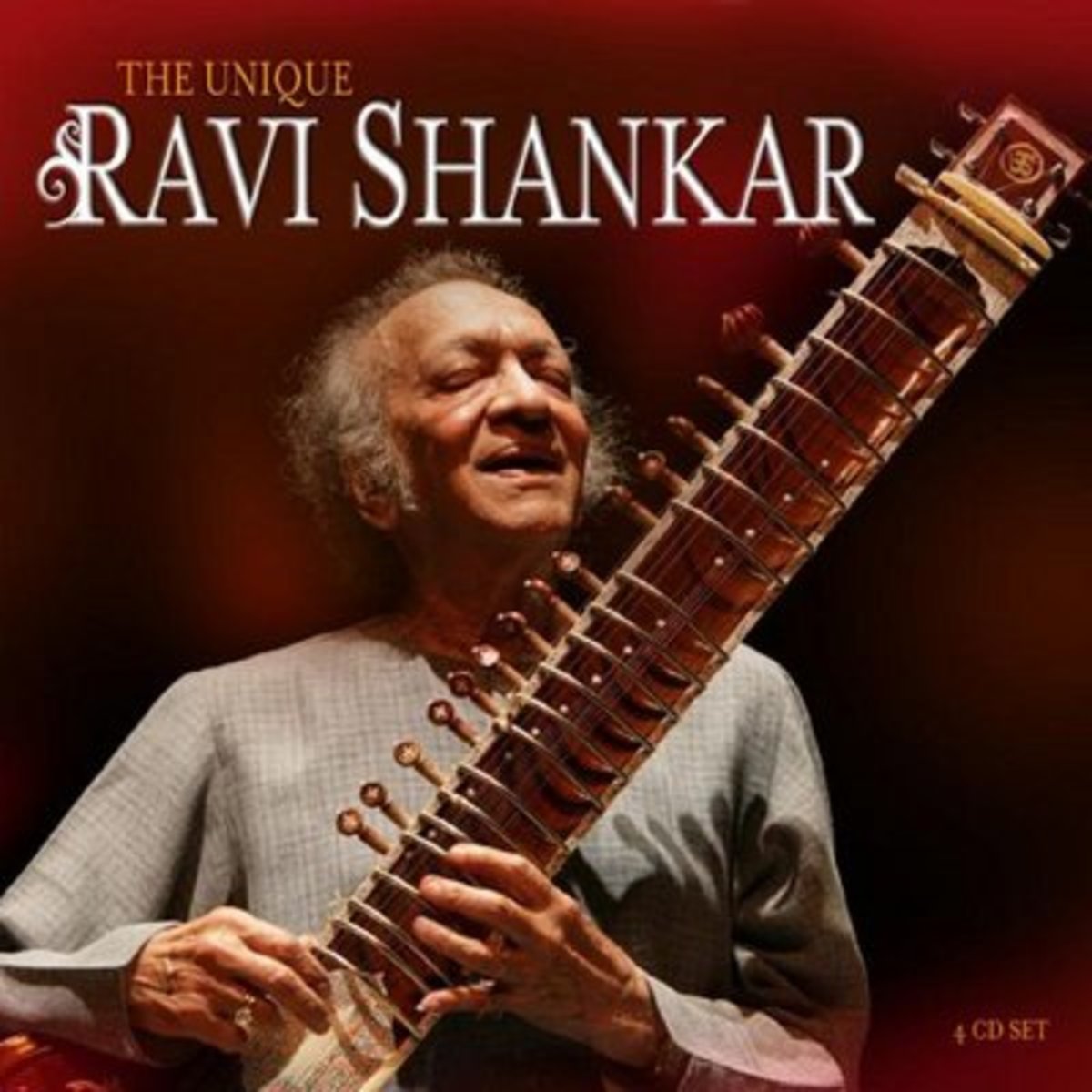Miklos Rozsa - Beyond Ben Hur

He Made Film Noir Sing!
What do The Green Berets, Dead Men Don't Wear Plaid, and Alfred Hitchcock's Spellbound have in common? Their film scores were all composed by Miklos Rozsa.
Rozsa, best known for the score of Ben Hur, composed for these and many other films, but did you know that he also wrote many concert works? I invite you to meet Hollywood's Miklos Rozsa.

Rozsa's Life and Work
Miklos Rozsa was born in Budapest in 1907 and from an early age demonstrated his mother's same affinity for music. (His mother had trained as a pianist at the Liszt Academy.) He learned the violin, the viola and the piano and was publicly performing Mozart at the age of 7. A musical career awaited, and he was inspired by Bartok, Kodaly, and Franz Liszt among others, and shared their liking for Hungarian folk music. He studied formally at the University of Leipzig and there he composed a number of classical works including his first Violin Concerto. He continued composing after moving to Paris and won the attention of Richard Strauss and Dohnanyi. He studied further in London's Trinity College and his first film music was for European films by directors Jacques Feyder and Alexander Korda. When war broke out in Europe, Rozsa moved to the U.S. where his music for The Thief of Bagdad brought him instant attention and an Oscar nomination. He continued his work in Hollywood with a distinguished and prolific career scoring numerous well-known movies. Among these are several examples of classic "Film Noir" before he carved out a new reputation with several notable scores for historical and/or biblical epics such as Ben Hur, Quo Vadis and El Cid. He was also a music tutor to Jerry Goldsmith.
Rozsa's musical style is generally big and direct, though he is also capable of underscoring more delicate scenes. Some of his music has a religious feel to it as befits some of the biblical epics for which he provided the soundtrack, including for example his simple yet powerful setting of "The Lord's Prayer" for King of Kings, which didn't appear in the movie, but was written solely for the original soundtrack. His versatility allowed him to move effortlessly between Historical Epics and Thillers, Film Noir or Psychological Dramas such as Double Indemnity, The Lost Weekend and The Killers. In many ways his technique was a forerunner for the music of Bernard Herrmann, not only when you consider his score for Hitchcock's Spellbound, the schizophrenic waltz from Madame Bovary, and the mythical adventure yarn The Golden Voyage of Sinbad but also simply his powerful, darkly atmospheric but charismatic soundscapes. Incidentally, Rozsa adapted his film music for Spellbound into a piano concerto.
Rozsa's Film Noir style is so closely associated with this type of film that it has been much borrowed and parodied, even to the extent that it now sounds almost cliched. The 4-note motto used in The Killers was employed (though not intentionally) on the TV series Dragnet and later also on the movie version with its deadpan form of parody, and Steve Martin's Dead Men Don't Wear Plaid with its many ingenious clips from classic Noir films seemed to demand a Rozsa score. This was ironic since Rozsa had scored at least three of the original movies from which clips were taken, including Double Indemnity, The Lost Weekend and The Killers, so Rozsa ended up with something of a self-parody calling the score Dead Men's Bolero. For The Lost Weekend (and also for Spellbound), Rozsa used that early electronic instrument the theremin to depict the mysterious attraction and effects of the Demon Drink, in much the same way as other composers have used this sound for B-movies of alien invasion.
Despite this versatility in his writing, it is impossible not to think of Rozsa without bringing to mind the Historical Epics for which he is justly famous. These soundtracks accompanied gargantuan spectacles with thousands of extras and demanded large and powerful orchestral forces to project fanfares and dark march themes. These depicted not just the scale of the movies but the sheer impact that these stories have had on succeeding generations, whether from the cultural influence of these past civilizations or the importance to the founding of some of today's leading religions. Throughout his years in film music, Rozsa continued to consider opportunities to create music for the concert hall. He composed another Violin Concerto for Jascha Heifetz in 1953 for example, and his Sinfonia Concertante for Violin, Cello and orchestra is essentially a double concerto for Heitetz and Gregor Piatigorsky. He later wrote a full Cello Concerto for Janos Starker, and his concert version of his music for Spellbound is very much in the form of a piano concerto. His health declined in later years and one project to create choral suites from the Biblical Epics was interrupted by his death in 1995, though completed by friends and pupils of the composer.
Great Rozsa Soundtrack Themes - A Compilation of His Greatest Hits and Their Movies
Movie Music for Your Home
Just the Facts, Ma'am
The Dragnet theme was composed by Walter Schumann, but unknowingly he used a 4-note motif that Rozsa had previously written for the movie The Killers. When people noticed the similarity there was a lawsuit, and Schumann agreed to pay half the royalties for his Dragnet theme to Rozsa.
Ben Hur Movie Trailer - With a taste of the musical themes that run through the movie

Musical Works by Miklos Rozsa
(He also wrote books, so I am being specific!)
Works for Orchestra
· Symphony in 3 Movements, Op. 6a (1930/1993)
· Theme, Variations & Finale, Op. 13 (1933)
· Theme, Variations & Finale, Op. 13a (Revised version) (1966)
· Three Hungarian Sketches, Op. 14 (1938)
· Three Hungarian Sketches, Op. 14a (Revised version) (1958)
· Concerto for String Orchestra, Op. 17 (1943)
· Kaleidoscope, 6 short pieces for Small Orchestra, Op. 19a. (1946)
· Andante for String Orchestra, Op. 22a
· The Vintner's Daughter, 12 Variations on a French folksong, Op. 23a (1952)
· Hungarian Serenade, Op. 25 (1945)
· Overture to a Symphony Concert, Op. 26A (1963)
· Notturno Ungherese, Op. 28 (1964)
· Tripartita per Orchestra, Op. 33 (1972)
· Festive Flourish (1975)
Works for solo instrument with orchestra
· Variations on a Hungarian Peasant Song, Op. 4 (1929) for Violin and Orchestra
· North Hungarian Peasant Songs and Dances, Op. 5 (1929) for Violin and Orchestra
· Violin Concerto, Op. 24 (1953-54)
· Sinfonia Concertant, Op. 29 (1966) for Violin and Cello and Orchestra
· Tema con Variazoni, Op. 29a (1966) for Violin, Cello and Orchestra
· Piano Concerto, Op. 31 (1967)
· Cello Concerto, Op. 32 (1971)
· Viola Concerto, Op. 37 (1982)
Concert Versions of Film Scores
· The Thief of Bagdad Suite (1940)
· Lady Hamilton Love Theme (1941)
· Lydia: Love Theme and Waltz (1941)
· Jungle Book Suite for narrator and orchestra (1942)
· Lullaby (from The Jungle Book Suite) (1942) for four-part mixed chorus, a cappella
· Spellbound Concerto for piano and orchestra (1946)
· Spellbound Concerto (orchestral version) (1946)
· The Red House Suite (1947)
· Mark Hellinger Suite (1948)
· The Madame Bovary Waltz (1949)
· Quo Vadis Suite (1951)
· Lust for Life Suite (1956)
· Ben-Hur Suite (1959)
· El Cid Suite (1963)
· New England Concerto for two pianos and orchestra (1984) (Themes from Lydia and Time Out of Mind)
Ramming Speed!

Rozsa on Hollywood
The composer comments on how musical directors tried to "improve" his music
"One of the things I quickly came to realise about Hollywood music was that there simply was no style as such, and what I managed to do in 1944 in Double Indemnity I count (at least for myself) as something of a breakthrough. Many of the early musicians working in Hollywood sound films were former Broadway and silent film conductors, song-writers and vaudeville pianists, 'top-line' composers with innumerable uncredited hack 'arrangers' and 'orchestrators.' The general idiom was conservative and meretricious in the extreme-diluted Rachmaninov and Broadway.
In Double Indemnity I introduced certain asperities of rhythm and harmony which wouldn't have caused anyone familiar with the serious musical scene to bat an eyelid, but which did cause consternation in certain musical quarters in Hollywood. The musical director of Paramount couldn't stand the score from the beginning, and told me so. Did I really have to have a G-sharp in the second fiddles clashing with a G-natural in the violas an octave below? Couldn't I change it, just for his sake? In his opinion the place for such eccentricities was Carnegie Hall, not a movie studio. I refused to change a note, and thanked him for the compliment; he assured me it wasn't meant as such and prophesied that the score would be thrown out lock, stock, and barrel after the sneak preview.
In fact everybody liked what I'd done and the score remained intact, but the story gives one some idea of how difficult it was to maintain any decent level of musical integrity in the Hollywood of those days. People with a 'serious' musical upbringing such as Herrmann, Korngold, and myself were the exception rather than the rule. Visiting celebrities such as Copland and Milhaud were always liable to have their scores 'fixed up' by some local genius."
Have a Lens Noir in You?
You can make your own lens right now!
It's fun, it's free, and it can actually earn you $$. Click Here to Get Started!










